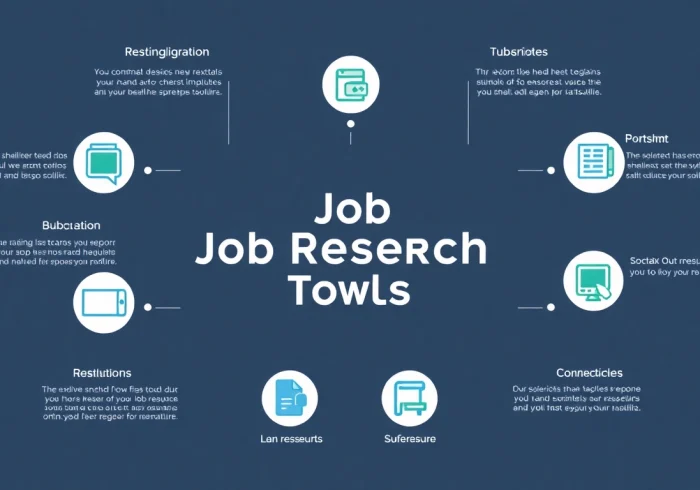Understanding Medical Billing and Coding
In today’s healthcare landscape, the roles of medical billing and coding are fundamental to the efficient functioning of medical practices and hospitals. A vital part of the healthcare revenue cycle, medical billing and coding involve the translation of healthcare services into standardized codes for billing and insurance purposes. The certified professionals who engage in this process ensure that healthcare providers are compensated accurately and swiftly.
For those looking to embark on this rewarding career path, obtaining a medical billing and coding certificate can be a critical step. This certification not only validates your expertise but also significantly enhances your employability in the healthcare industry.
What is Medical Billing and Coding?
Medical billing and coding are two distinct yet interconnected disciplines. Medical billing refers to the process of submitting and following up on claims with health insurance companies to receive payment for healthcare services rendered. On the other hand, medical coding involves the translation of medical diagnoses, procedures, and services into standard codes using the Current Procedural Terminology (CPT) and the International Classification of Diseases (ICD).
Understanding these processes is vital for healthcare professionals as they navigate the complexities of insurance claims and reimbursements. Together, these tasks ensure that healthcare providers are compensated for their services while also maintaining accurate and up-to-date patient records.
The Importance of Certifications in Healthcare
Certifications play a key role in healthcare professions as they demonstrate a level of expertise and commitment to the field. In medical billing and coding, certifications such as the Certified Professional Coder (CPC) or Certified Professional Biller (CPB) signify that an individual has not only acquired the necessary skills but also adheres to industry standards. Healthcare organizations often prefer to hire certified professionals as it minimizes errors in billing and enhances compliance with regulations.
Moreover, certification can lead to greater job security and opportunities for advancement within the field. Many employers are willing to offer higher salaries to certified professionals, recognizing the added value they bring to their organizations.
Key Terminology You Should Know
- CPT Codes: Codes used to document medical services and procedures.
- ICD Codes: Codes used for reporting medical diagnoses.
- HCPCS Codes: Healthcare Common Procedure Coding System provides additional codes not covered by CPT.
- Claim: A request for payment submitted to an insurance company.
- Denial: When an insurance company refuses to pay for a service or procedure.
Benefits of a Medical Billing and Coding Certificate
Earning a medical billing and coding certificate offers numerous benefits that contribute to both personal and professional development. From enhanced job prospects to increased earning potential, the advantages of obtaining this certification are substantial.
Career Opportunities in Medical Billing and Coding
The demand for qualified medical billing and coding professionals is on the rise. Various healthcare organizations, including hospitals, private practices, outpatient clinics, and insurance companies, are constantly in need of skilled coders and billers to manage their services. An individual with a medical billing and coding certificate can explore various career avenues, including:
- Medical Coder
- Billing Specialist
- Health Information Technician
- Medical Billing Advocate
- Compliance Officer
These roles not only provide a pathway for career advancement within the healthcare revenue cycle but also offer opportunities across different settings and specialties, ensuring a dynamic work environment.
Potential Earnings for Certified Professionals
The earning potential for certified medical billing and coding professionals can be quite lucrative. According to a survey conducted by the American Academy of Professional Coders (AAPC), certified professionals earn an average annual salary of $55,923. This figure can vary significantly based on location, experience, and additional certifications, with many experienced professionals earning upwards of $70,000 a year. Furthermore, acquiring additional certifications can enhance your marketability and lead to higher salaries.
Job Security and Industry Demand
The healthcare industry is one of the fastest-growing sectors in the U.S., which correlates directly with the demand for medical billing and coding professionals. As hospitals and healthcare facilities expand their services and the population continues to grow, the need for efficient billing and coding systems becomes increasingly essential. This demand ensures job security for certified professionals as their expertise becomes indispensable for the financial well-being of healthcare organizations.
How to Choose the Right Program for Your Medical Billing and Coding Certificate
Choosing the right program to obtain your medical billing and coding certificate is critical to your success in the field. Here are key factors to consider when evaluating potential programs:
Accreditation and Program Reputation
Before enrolling in a medical billing and coding program, it’s essential to determine its accreditation status. Accreditation ensures that the program meets the industry standards for education and training. Look for programs accredited by recognized organizations such as the Commission on Accreditation for Health Informatics and Information Management Education (CAHIIM) or the American Health Information Management Association (AHIMA). Researching the program’s reputation through student testimonials and job placement rates can also provide insight into its quality.
Online vs. In-Person Learning
With the advent of technology, many accredited institutions now offer online programs for medical billing and coding. Online education provides flexibility, allowing students to learn at their own pace while balancing work and personal responsibilities. However, if you prefer face-to-face interaction and guided instruction, traditional in-person programs may be more suitable. Consider your learning style and schedule when choosing between these options.
Financial Considerations and Payment Options
Cost is often a significant factor when selecting a certification program. Investigate the total tuition, available financial aid options, and payment plans offered by institutions. Some programs may also offer scholarships or grants that can alleviate the financial burden. Balancing quality education with affordability will help you make a sound decision.
Preparing for the Certification Exam
Once you’ve chosen a program and completed the necessary coursework, preparing for the certification exam is the next crucial step in your professional journey. Here are some strategies to prepare effectively:
Study Tips and Resources
Develop a study plan that outlines topics to cover as well as a timeline leading up to the exam date. Utilize resources such as textbooks, online courses, and practice materials. Joining a study group can also facilitate discussions and clarify doubts. Moreover, many organizations and schools offer exam preparation workshops designed to help candidates succeed.
Practice Exams and Simulation Tools
Taking practice exams is one of the most effective ways to prepare for your certification. These simulate the test environment and format, allowing you to familiarize yourself with the types of questions asked. Many online resources provide access to practice questions, flashcards, and even online quizzes to help strengthen your understanding of medical coding principles and guidelines.
Understanding Exam Format and Requirements
Familiarizing yourself with the certification exam’s format and specific requirements is essential. Each certification has its own criteria, including passing scores and allowable test materials, which must be thoroughly understood before exam day. Review the official guides or resources from the certifying body to ensure you are fully prepared.
Trends and Future of Medical Billing and Coding
The field of medical billing and coding is continuously evolving, influenced by technological innovations and shifts in healthcare practices. Staying abreast of these changes can help professionals adapt and thrive in their careers. Here are key trends shaping the future of the industry:
Technological Advancements Impacting the Industry
Technology is revolutionizing medical billing and coding. Electronic health records (EHR) systems, artificial intelligence (AI), and cloud computing are making processes more efficient and reducing manual errors. These advancements allow billing professionals to manage larger volumes of data with increased accuracy. Familiarity with health information technology platforms and coding software will be vital for success in a tech-driven environment.
The Shift Towards Remote Work in Healthcare
The COVID-19 pandemic has accelerated the trend of remote work across many industries, including healthcare. Medical billing and coding can be performed remotely, allowing for greater flexibility. Employers are increasingly open to hiring remote workers, which expands job opportunities for certified professionals regardless of geographical location.
Continued Education and Additional Certifications
The healthcare industry is notoriously dynamic, with regulations and coding standards frequently aligning with new healthcare reforms and practices. Continuous education is vital for staying compliant and knowledgeable. Pursuing additional certifications or specialized training in areas like risk adjustment coding or compliance can distinguish professionals from their peers and enhance career opportunities.



